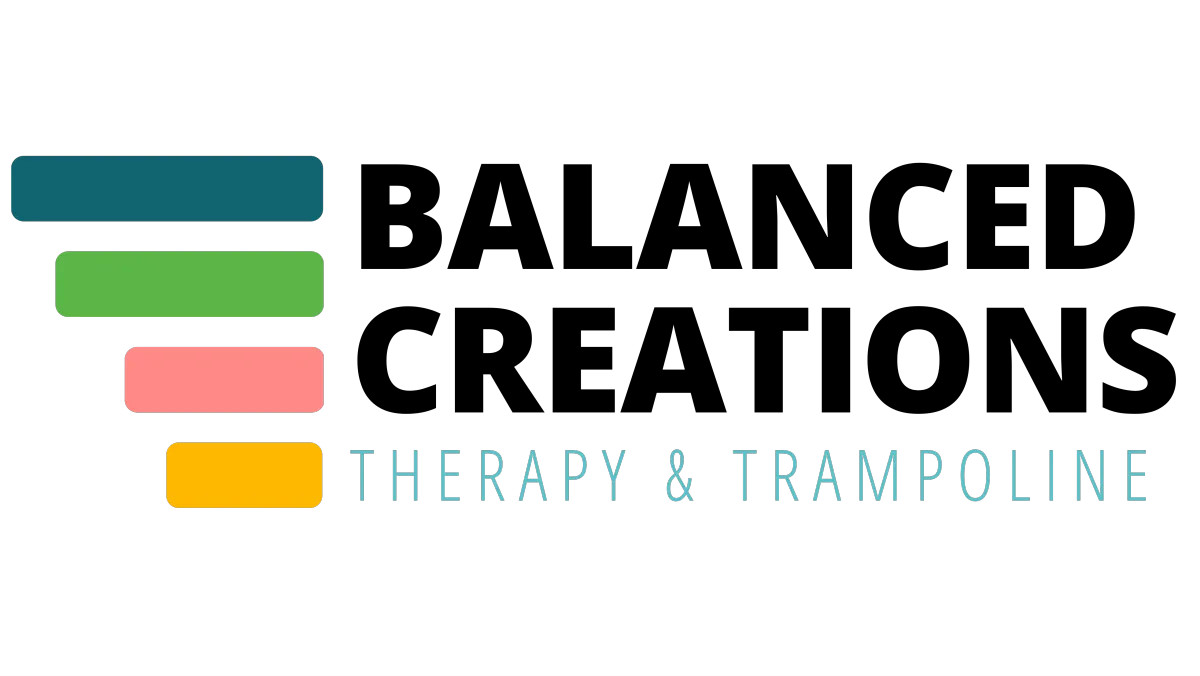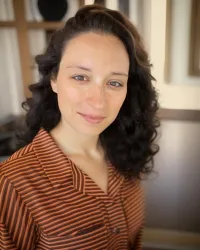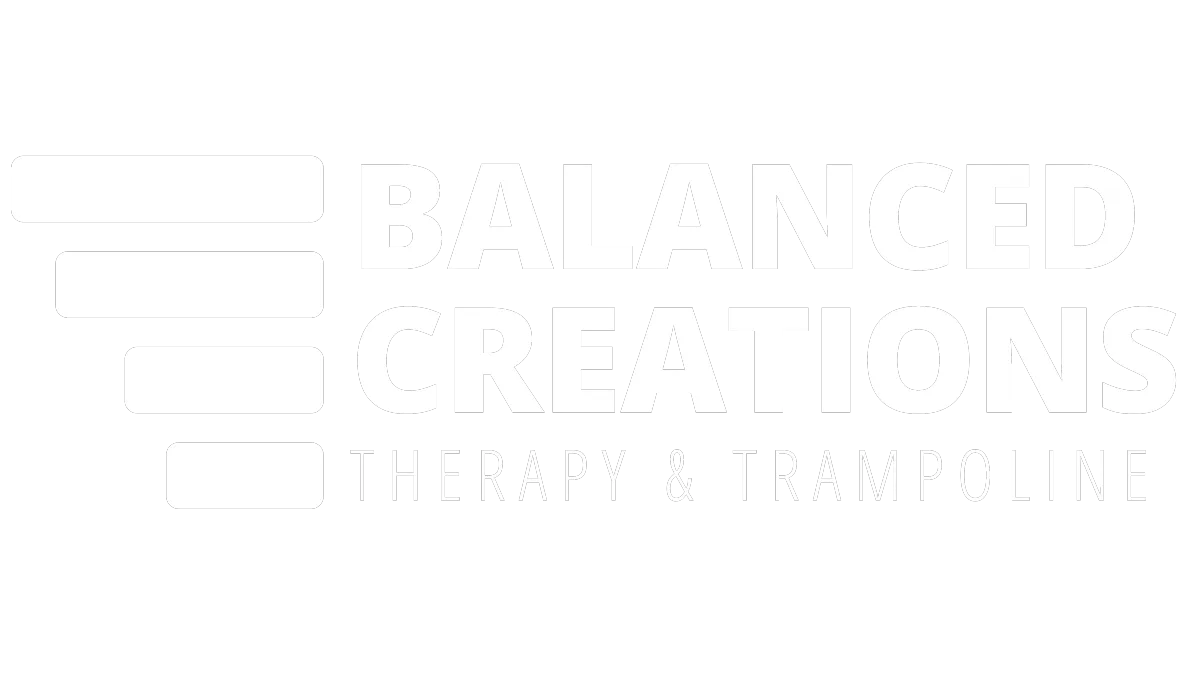Play-Based Therapy Fort Worth, Texas
Welcome to the Family
We’re excited to support families in Fort Worth, Aledo, and Parker County!
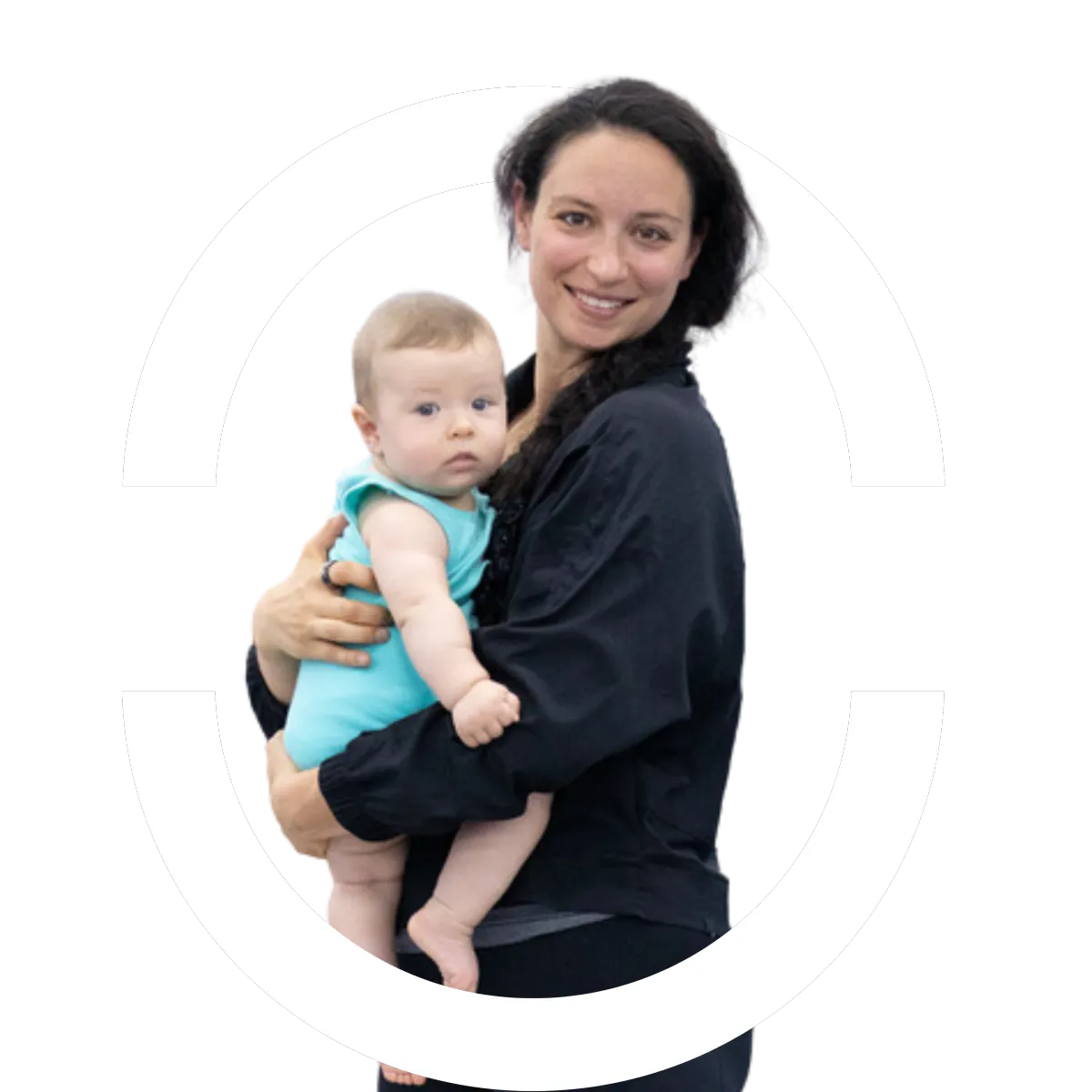
Hello! I'm Dr. Sigourney Weathers, PT.
Hello, I'm Dr. Sigourney Weathers. With a Doctorate in Physical Therapy and a passion for gymnastics, trampoline, and community, I’m redefining pediatric physical therapy and wellness in Fort Worth, Aledo, and Parker County, Texas.
With over 30 years in the gymnastics community—including 15+ years as a coach and judge and 10+ years specializing in inclusive and adaptive gymnastics—I bring extensive expertise to my practice.
I founded Balanced Creations Therapy & Trampoline
in Aledo, Texas, to address a gap in the system: providing ongoing recreational support and community after therapy.
At Balanced Creations, we go beyond therapy to foster belonging and empowerment. Using play-based, child-led, and neurodiversity-affirming practices like therapeutic trampolining and gymnastics, we help children thrive in Fort Worth, Aledo, and surrounding areas.
Outside of work, I enjoy spending time with family, staying active, and indulging in hobbies like aerial silk and trampolining.
Ready to help your child thrive? Join us at Balanced Creations Therapy & Trampoline, where we provide tailored physical therapy and developmental playgroups to support your child’s growth and wellness.
Proudly serving families in Fort Worth, Aledo, Parker County, and beyond.

Max Tanner

Lorem ipsum dolor sit amet, consectetur adipiscing elit. Quisque nisi nunc, tincidunt non nibh non, ullamcorper facilisis lectus. Sed accumsan metus viverra turpis faucibus, id elementum tellus suscipit. Duis ac dolor nec odio fermentum

Max Tanner

Lorem ipsum dolor sit amet, consectetur adipiscing elit. Quisque nisi nunc, tincidunt non nibh non, ullamcorper facilisis lectus. Sed accumsan metus viverra turpis faucibus, id elementum tellus suscipit. Duis ac dolor nec odio fermentum
Hear From Our Clients
We offer financial
wings to let your
dreams soar higher
Lorem ipsum dolor sit amet, consectetur adipiscing elit. Quisque nisi nunc, tincidunt non nibh non, ullamcorper facilisis lectus. Sed accumsan metus viverra turpis faucibus, id elementum tellus suscipit. Duis ac dolor nec odio fermentum
Our values
Our core belief is that every child, regardless of ability, deserves a space where their communication is heard and their wellness journey is supported. We proudly serve families in Fort Worth, Aledo, and Parker County, fostering a sense of belonging and empowering every individual to reach their full potential.
Why Balanced Creations?
Neurodiversity-affirming care
We celebrate every child's uniqueness. Our play-based, child-led therapies focus on fostering confidence and independence in a supportive environment.
Specialized Therapies for all abilities
From therapeutic trampolining to adaptive gymnastics, our tailored programs help children of all abilities build strength, coordination, and life skills.
Local expertise, community focused
Proudly serving Fort Worth, Aledo, and Parker County, we provide families with trusted, compassionate care close to home.
Ready to start your child’s wellness journey?
Book your free consultation!
Contact us today to learn more about our pediatric therapy services and adaptive gymnastics classes!
Resources for Parents and Clinicians
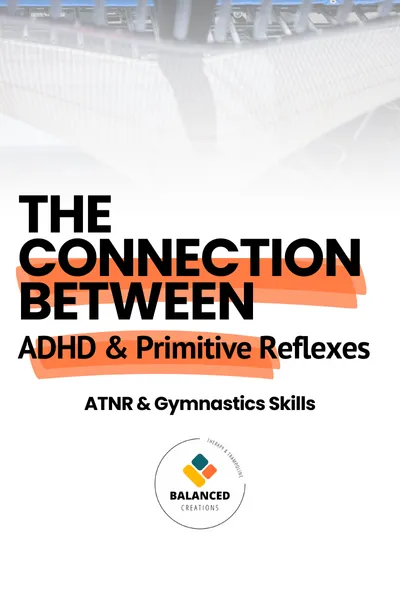
ADHD and Primitive Reflexes: How Trampoline and Gymnastics Help Integration
ADHD and Primitive Reflexes: How Trampoline & Gymnastics Help with ATNR Integration
Learn how ADHD is linked to retained primitive reflexes and how trampoline and gymnastics can help integrate ATNR for improved development.
Introduction: Primitive reflexes are vital for early childhood development, helping lay the foundation for motor skills and cognitive abilities. However, when these reflexes aren’t fully integrated, they can lead to challenges like ADHD. In this post, we’ll explore how primitive reflexes like ATNR and STNR are connected to ADHD and how trampoline therapy and gymnastics support their integration, enhancing your child’s development.
Summary of the Study: A systematic review titled Attention Deficit Hyperactivity Disorder is Associated with Asymmetric Tonic Neck Reflexes examined the link between ADHD and primitive reflexes, specifically ATNR and STNR. Findings revealed a moderate correlation between ADHD and these non-integrated reflexes, suggesting that addressing them could play a key role in managing ADHD symptoms.
Key Findings:
Moderate correlation found between ADHD and ATNR (r = 0.48) and STNR (r = 0.39).
Behavioral assessments, sex, and reflex tests influenced the strength of these correlations.
The need for more research on the causality between ADHD and primitive reflex non-integration was highlighted. The authors concluded that ADHD symptoms are closely linked to the non-integration of ATNR and STNR, suggesting a need for further research to explore the causality of this relationship.
How Trampoline & Gymnastics Help with Reflex Integration: At Balanced Creations Therapy & Trampoline, we use specific trampoline and gymnastics activities designed to address retained primitive reflexes like ATNR, promoting coordination and cognitive function.
How Trampoline Therapy Supports Reflex Integration:
ATNR Integration: ATNR can persist if not properly integrated by age six, affecting physical and cognitive development. Trampoline activities like cross-body movements and eye tracking help diminish ATNR by encouraging integrated movements. Activities include running on the spot, single-leg balance, and jumping turns.
How Gymnastics Supports Reflex Integration:
Gymnastics Activities: Specific gymnastics exercises help with ATNR integration, including crawling under mats, balance beam work, log rolling, cartwheels, and opposition-based movements like leg kicks and marching. These movements engage both sides of the body, improving coordination, balance, and reflex integration.
Signs Your Child May Have Retained ATNR:
Gross Motor Challenges: Difficulty crawling, imbalance, clumsiness, and poor sports performance.
Fine Motor Challenges: Struggles with eye-hand coordination, handwriting, and speech production.
Visual & Auditory Challenges: Difficulty with vision, visual-motor tasks, and processing auditory information.
Attention & Concentration: Poor focus, difficulty concentrating, and speech-language delays.
Next Steps:
If you notice any of these challenges in your child, don’t wait. Reach out to us today for a free 15-minute consultation or your initial session.
Stay tuned for our next blog, where we’ll explore the Symmetric Tonic Neck Reflex (STNR) and its impact on development.
